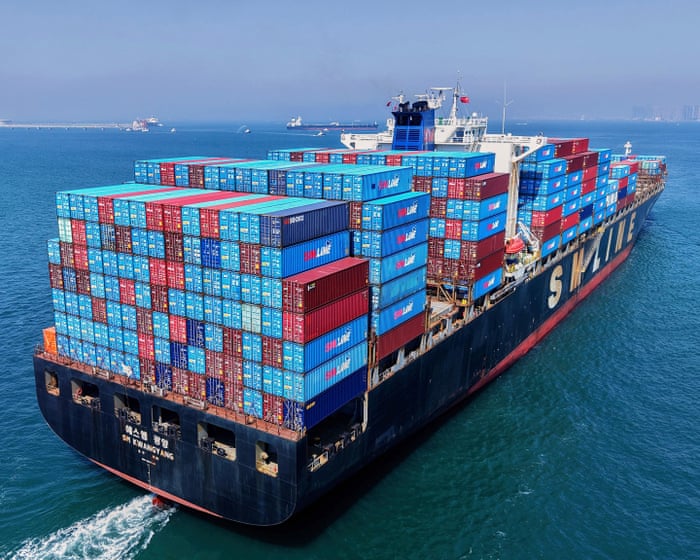The International Monetary Fund (IMF) has raised its global growth forecast for 2025, citing a more stable trade environment after Donald Trump softened his toughest tariff threats. The Washington-based institution now expects the world economy to expand by 3% next year, up from its April estimate of 2.8%, with growth in 2026 also revised slightly higher to 3.1%.
The improved outlook follows a partial rollback of U.S. trade restrictions, which helped revive global commerce. However, the IMF warned that American trade policy remains unpredictable, with risks still tilted toward weaker growth.
Most economies, including the UK, benefited from the brighter forecast. Britain’s growth projection for this year was nudged up to 1.2%, matching an earlier adjustment made in May.
Earlier this year, Trump had threatened steep tariffs on major exporters like the EU, China, and South Korea, sparking market turmoil as investors feared a trade war. However, the U.S. later eased some of these measures in exchange for commitments to buy American goods—a move that calmed financial markets.
Recent negotiations led to reduced tariffs on EU imports (down to 15% from a threatened 30%) in exchange for European purchases of U.S. energy supplies. Similar deals were struck with Japan and other trading partners. While China also saw some tariff relief, tensions remain after Beijing retaliated with its own trade restrictions.
IMF chief economist Pierre-Olivier Gourinchas noted that while U.S. tariffs have declined from their peak, they remain historically high, and global trade policy is still uncertain. He warned that without clearer agreements, ongoing trade disputes could dampen investment and economic activity.
Gourinchas also stressed the importance of central bank independence, particularly as political pressure mounts in some countries. He credited central banks’ autonomy for helping achieve a “soft landing” after recent inflation spikes.
The IMF expects the Bank of England to cut interest rates twice this year, lowering borrowing costs to 3.75%. However, rising inflation in some sectors could complicate these plans.Rising inflation in the US and UK may weaken market confidence. Financial markets anticipate the Bank of England will cut interest rates to 4% next Thursday.
Chancellor Rachel Reeves highlighted that according to IMF forecasts, the UK is still the fastest-growing economy in Europe among G7 nations, “despite the global economic challenges we face.”
Facing calls to ease spending limits and stimulate growth, Reeves confirmed investment plans remain on schedule, including transport improvements in city regions, record funding for affordable housing, and support for major projects like Sizewell C.
Recent trade figures revealed US goods imports dropped by $11.5 billion (£8.6 billion) in June to $264.2 billion, following earlier increases as businesses rushed to avoid new Trump-era tariffs. This reduced the US trade deficit to $86 billion in June, down from $96.4 billion in May.



